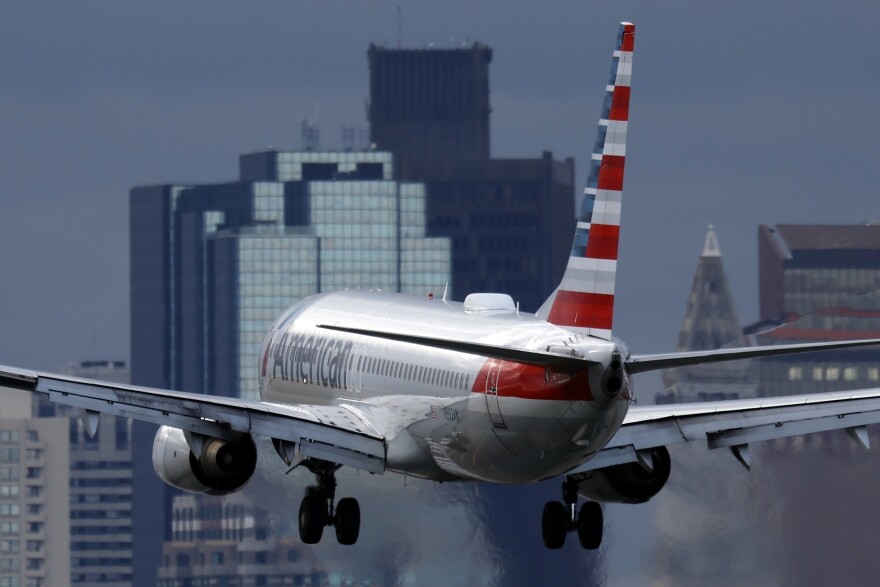Southwest Florida’s largest airports do not have climate change action plans to map out how they are reducing their carbon footprints to reduce greenhouse gas emissions and help slow global warming.
The movement to create written, multi-year, and expansive plans to work toward 100-percent self-sustainable airports has been growing worldwide for more than a decade.
Those efforts include using electric vehicles to shuttle passengers and baggage, convincing airlines to use more fuel-efficient aircraft and fuel, building solar farms to generate enough clean electricity to support the airport, wholesale recycling, and planting trees and grasses that store planet-warming carbon.
The Airport Carbon Accreditation program is a global greenhouse gas management agency that assists with reducing carbon output and increasing airport sustainability. The carbon-reduction program has drawn 509 airports in 87 countries.
In North America, 62 of those include Tampa International and Tampa Executive airports. Neither Southwest Florida International, Fort Myers Page Field, or Punta Gorda airports participate.

Punta Gorda Airport (PGD) is overseen by the Charlotte County Airport Authority, while the Lee County Port Authority oversees both Southwest Florida International (RSW) and Page Field (FMY) airports.
Victoria Moreland, the spokeswoman for the Lee County airports, said some sustainability steps have been taken.
Solar panels were installed on the new terminal at FMY which, when it’s sunny out, can power about a quarter of the building’s energy needs. At RSW, energy-efficient lighting, high-efficiency air-conditioning equipment, and low-flow plumbing fixtures have replaced less efficient devices.
But there has been no effort to create the type of long-range carbon-reducing, greenhouse-gas abating master plan that dozens of airports across America have already compiled and are operating under.
“We do not have carbon footprint and greenhouse gas reduction strategies at either RSW or FMY," Moreland said. “We do not currently have a formal plan for carbon.”

RSW served a record-breaking 10.3 million passengers in 2022 and is one of the top 50 U.S. airports for passenger traffic.
Moreland said the airports' carbon footprint reduction plans “come from airlines," meaning RSW and FMY rely on the companies whose planes land and takeoff at the airport to initiate and follow-through on local greenhouse gas-reduction initiatives.
“You will want to talk to the airlines about this,” Moreland said in an email.
Delta Airlines carries more passengers to RSW than any other airline, with 2,265,168 during 2022. Atlanta-based Delta accounted for 21.90 percent of the commercial airline market share at RSW.
Delta representatives did not return phone calls or an email requesting information on their greenhouse gas emission-reductions plans at RSW.
Airport and airlines account for about one-third of the 28 percent of greenhouse gas emissions from the transportation sector in the U.S. That’s more carbon dioxide, methane, nitrous oxide, and hydrofluorocarbons sent into the atmosphere than any other sector, according to the EPA.
San Francisco International Airport (SFO), with about four times the passengers annually than RSW, has one of the country’s most aggressive greenhouse gas reduction programs, with its first climate action plan published in 2011.
SFO calls its ultimate goal “triple zero:” zero waste going to landfill; zero net energy facilities; zero net carbon operations.
“As hubs to the global economy, airports have a key role to play in addressing the climate crisis by reducing greenhouse gas emissions in line with nations and states everywhere,” the airport’s website states. “The San Francisco International Airport is doing this and more.”
Environmental reporting for WGCU is funded in part by VoLo Foundation, a non-profit with a mission to accelerate change and global impact by supporting science-based climate solutions, enhancing education, and improving health.
Sign up for WGCU's monthly environmental newsletter, the Green Flash, today.
WGCU is your trusted source for news and information in Southwest Florida. We are a nonprofit public service, and your support is more critical than ever. Keep public media strong and donate now. Thank you.





